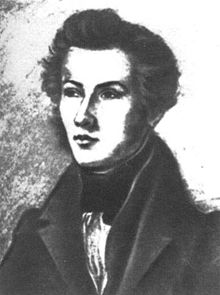 On The Mythicism Files blog Quixie has posted a review of Bruno Bauer’s Christ and the Caesars:
On The Mythicism Files blog Quixie has posted a review of Bruno Bauer’s Christ and the Caesars:
ANTECEDENTS OF NT MINIMALISM:
BAUER’S ‘CHRIST AND THE CAESARS’
It begins deliciously:
Bruno Bauer was for a brief time in the nineteenth century the enfant terrible of New Testament scholarship. He was a brilliant man who crossed paths and kept company with such notable contemporary Germans as Hegel, Marx, and Nietzsche. He became professor of theology in 1834—first in Berlin then later in Bonn—but by 1842 his radical rationalism provoked his academic superiors to revoke his teaching license. Insolent and defiant, he pissed off a lot of academics. He never regained a formal teaching post, but he continued to write books on New Testament criticism (and many other subjects) that challenged the orthodox narrative, particularly its view of Christian origins. He became even more scandalous than Strauss or Schleimacher, who had already begun the process of demythologizing the New Testament before Bauer came along, of examining scripture from a literary perspective rather than a devotional one.He published Christ and the Caesars in 1877. This particular book is noteworthy as an influence on what would come to be known as the Dutch Radical school (Loman, Van Manen, Pierson, van den Bergh van Eysinga, et al). The Dutch Radicals mainly focused on the problems with the dating, provenance, and/or authenticity of the Pauline corpus, but they were (at least indirectly) the precursors of the mythicist scholarship of the early twentieth century (c.f. Drews). Bauer may have been scandalous, but he was far from obscure in his day. He was notorious. He was so widely known that Albert Schweitzer even dedicated a whole chapter of his seminal Quest of the Historical Jesus to discussing his view of Bauer’s place on the continuum of scholarship, but Bauer’s work has been all but ignored and neglected ever since.
An interesting discussion of Christ and the Caesars follows. . . . .
